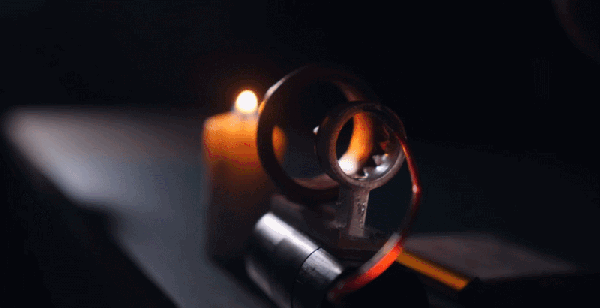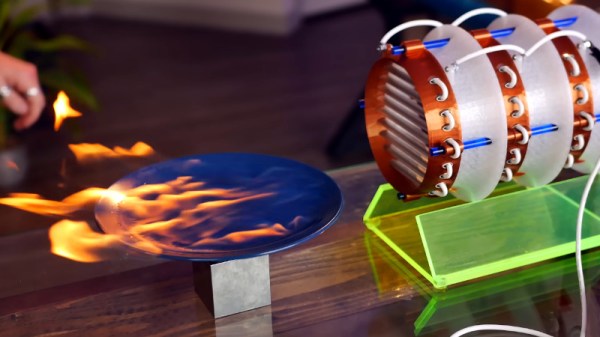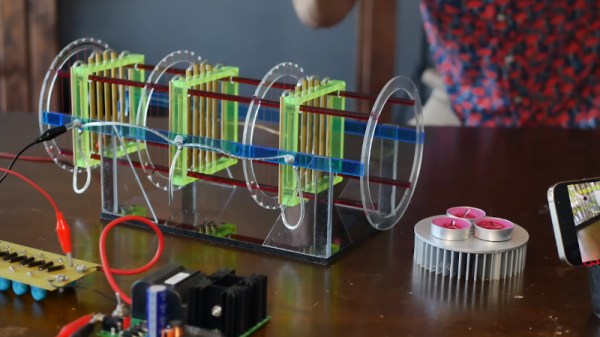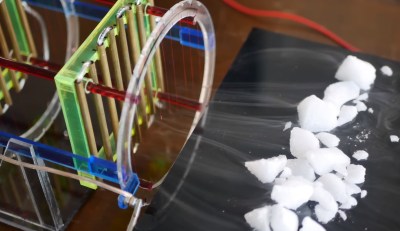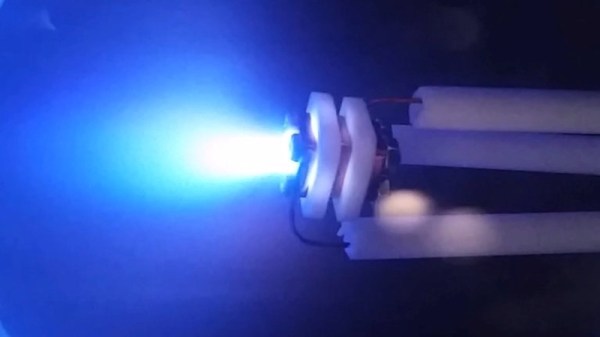Want to generate some thrust by way of an exposed high voltage discharge that looks great when you turn down the lights? [Integza] has a video showing how to do exactly that with some simple components. His little thruster manages to blow out candles at surprising distances before being pressed into service propelling a model boat.
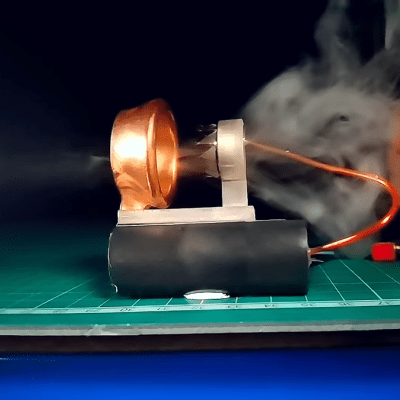 Here’s how it works: ionic wind is generated when a strong enough electric field causes nearby air to ionize, for example from sharp tips of a conductor carrying a high enough voltage. This discharge creates ionized air molecules with an electrical charge matching the polarity of the nearby conductor. Because matching polarities repel one another, the small cloud of ionized air molecules are repelled from both the nearby conductor, as well as from each other.
Here’s how it works: ionic wind is generated when a strong enough electric field causes nearby air to ionize, for example from sharp tips of a conductor carrying a high enough voltage. This discharge creates ionized air molecules with an electrical charge matching the polarity of the nearby conductor. Because matching polarities repel one another, the small cloud of ionized air molecules are repelled from both the nearby conductor, as well as from each other.
The result is a wind-like force from a device with no moving parts, and if the parts are structured right, it’ll blow out a candle with ease. [Integza] attached a cheap DC high-voltage transformer to a nickel strip cut into sharp points and rolled into a circlet. The other half of the thruster — in contrast to the thin crown of sharp points — is a smooth ring shaped a little like a thruster nozzle. 3D models of the parts are available online should you wish to try it yourself without all the trial and error of trying to optimize.
In an effort to minimize mass, [Integza] electroplates a 3D-printed version of the large ring with great results, spraying it with graphite first to make it conductive. Cheap and safe copper electroplating is entirely within the reach of hobbyists, and the resulting unit does a pretty nice job. You can watch it in action in the video, embedded below.
Continue reading “Little Ionic Thruster Blows Out Candles With Ease”

